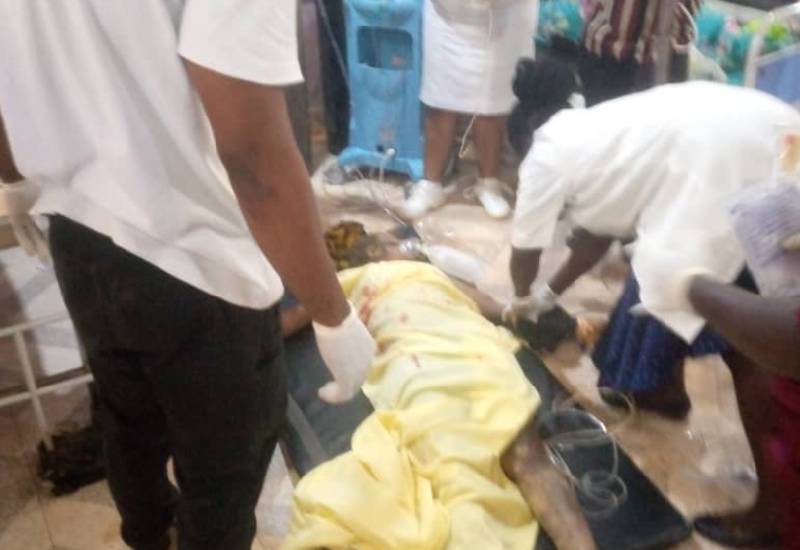By Godwin Owusu Frimpong
Fatal shooting raises urgent questions about security and safety at illegal mining operations in Ashanti Region
Friday’s unfortunate events at Kunsu, located in the Ahafo Ano South West District of the Ashanti Region, have brought to light the chronic issues surrounding illegal mining activities in Ghana. In a confrontation between locals and a security guard at an unlicensed mining site, one person was killed and seven others suffered injuries when the guard opened fire in an apparent attempt to ward off the villagers.
As locals arrived at the mining site after the cessation of operations by the Chinese operators, tensions escalated between them and the security personnel tasked with guarding the site. Reports indicate that the residents, often driven by the prospect of gold, sought to recover residual gold nuggets left behind by the departing miners. This ongoing conflict highlights not only the danger posed to the community but also raises significant concerns regarding the legality and regulation of mining activities in the area.
Witnesses claim that the guard, feeling threatened by the gathering locals, discharged his weapon in their direction, resulting in multiple injuries. Among the injured was a 17-year-old boy, who tragically succumbed to his wounds upon arrival at the Mankranso Government Hospital. The attack has sparked outrage among the residents, leading to violent retaliation as local youth set fire to one of the excavators used by the mining operation in a response to the violence.
Felix Nkansah, the Assembly Member for the Nyame Adom Electoral Area, spoke to reporters about the chaotic scene. “Some of the females in the town went to this site to work after the Chinese had closed. The security guard was said to have fired towards their direction, and eight of them sustained gunshot wounds,” he confirmed. Nkansah’s account serves to underscore the dual challenges facing the local community: the lure of illegal mining driven by widespread poverty and the dangers associated with these hazardous operations.
Initial police investigations have begun, but, as of now, no arrests have been made. Reports suggest that the security guard fled the scene immediately following the shooting, complicating efforts to bring accountability to the incident. The community is left in a state of grief and anger as they navigate the repercussions of such violence and reflect on the perilous nature of illegal mining practices.
This incident raises pertinent questions surrounding the management and oversight of mining activities in Ghana. Illegal mining, often referred to as “Galamsey,” has been a persistent issue within the nation, exacerbating social tensions and leading to environmental degradation. As authorities grapple with the alarming rise of illegal mining operations, the urgent need for a comprehensive strategy to regulate these activities and ensure the safety of local populations becomes increasingly clear.
As the investigations continue, and the community mourns the loss of one of their own, it is imperative for stakeholders—government agencies, local leaders, and civil society—to come together to address the underlying issues driving illegal mining and to establish safety protocols that protect locals from violence as they navigate their daily lives.
In light of this tragic event, the call for accountability and reform in the mining sector has never been more pressing. The government must take immediate action to ensure the safety of its citizens and regulate the mining industry to prevent further loss of life.
Godwin Owusu Frimpong





